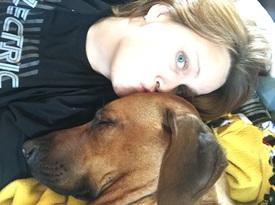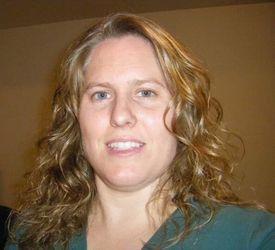MFP method actually work for anyone?
Replies
-
I'm just curious if it's worked for anyone or if you've had to alter it to work for you? Mine is set to lose 1lb a week and let me tell you, I'm not losing near that. I lost .3 last week and nothing this week. I eat back some of my exercise calories, not all of them usually because I don't want to eat back that much because I'm not that hungry. I also use a hrm to track and measure my food. I have tried TDEE in the past and that was way too much food and I gained weight.
The thing that jumps out at me is the HRM.
If you're using the HRM to calculate calories burned during exercise, I'd guess that it's significantly overestimating calorie burns. HRMs are notorious for doing that in people who don't have very high levels of cardiovascular fitness.
HRMs are not calorie calculators, and relying on them often leads to this.
I'd say knock 30% off your HRM numbers before you enter them.
Also, open your diary and we might see where you're going wrong.
This keeps getting more and more confusing to me. So many ppl say you should have a HRM to determine calories bunred. Im not expert so I am not arguing your point, but it just seems like there are so MANY variables involved depending on how you look at it
HRMs are not good at calculating calories. Heart rate simply isn't a very good proxy for calorie burn. For one thing, there are a number of variables that affect heart rate without affecting calorie burn (think anxiety, drugs like caffeine, etc). For another, cardiovascular efficiency matters. The HRM has to simply guess how good your CV system is at delivering oxygen to your tissues. It really has no idea. Ever notice how your heart rate at a given speed on the treadmill goes down over time? Well you're burning the same calories (assuming your weight is the same) but your HRM will measure fewer calories burned.
HRMs seem more or less calibrated to people who are rather fit. I see HRMs greatly exaggerating calorie burns for a LOT of people.
People automatically think that since the HRM is measuring something directly, it's automatically accurate. It's not.
Interesting and I see your point. Maybe I will not invest in one now. Let me ask you this? How would i determine how many calories i have burned when I doing a workout video or have went to an exercise class. Is there really no way to know? It's just a stab in the dark?0 -
Um, yeah. Of course, you have to measure your portions and log every bite and correctly estimate your exercise loss. The latter can sometimes be a bit of trial and error. And, of course, if you have a lower than average metabolism, you may have lower than average losses.0
-
If you're using the HRM to calculate calories burned during exercise, I'd guess that it's significantly overestimating calorie burns. HRMs are notorious for doing that in people who don't have very high levels of cardiovascular fitness.
HRMs are not calorie calculators, and relying on them often leads to this.
I'd say knock 30% off your HRM numbers before you enter them.
^^ I hit a small bump in the road when I started using my HRM calorie calculation. I started knocking off 30% and started losing steadily again.
Yup. You and a lot of other people.0 -
It has worked great for me! I don't eat my exercise calories and typically eat more protein and less carbs than what MFP recommends. I use a HRM for exercise because I felt like MFP was totally over exagerating what my calorie burn was. I have not complaints :bigsmile:0
-
I'm just curious if it's worked for anyone or if you've had to alter it to work for you? Mine is set to lose 1lb a week and let me tell you, I'm not losing near that. I lost .3 last week and nothing this week. I eat back some of my exercise calories, not all of them usually because I don't want to eat back that much because I'm not that hungry. I also use a hrm to track and measure my food. I have tried TDEE in the past and that was way too much food and I gained weight.
Weight loss isn't linear...you don't lose exactly 1 Lb per week. If I average my 40 Lbs lost out over the period of time that I lost it it comes out to roughly 1 Lb per week...you need to take a much LONGER view than a week or two.
And yes...the MFP method (NEAT method) works just fine and is a common method of calorie counting that has been around far longer than MFP itself. I did the MFP method for quite awhile until I customized my goals to go with TDEE method instead. I only did so because my exercise routine became regular and consistent and I didn't want to "eat back" calories...so I just built my workout calories in instead.
Also, keep in mind that calorie burns are estimate. Databases can be wildly off because there are just too many variables for them to be accurate. Machines are better, but a HRM is your best bet...even then, the Polar models have been independently tested to be about 70% accurate for calorie burn during an aerobic event.
Usually if it doesn't work, it's because the individual is overestimating burn and/or underestimating intake, even when they think they're doing everything right. Foods scales are your friend here as well...get one...use it.0 -
I'm just curious if it's worked for anyone or if you've had to alter it to work for you? Mine is set to lose 1lb a week and let me tell you, I'm not losing near that. I lost .3 last week and nothing this week. I eat back some of my exercise calories, not all of them usually because I don't want to eat back that much because I'm not that hungry. I also use a hrm to track and measure my food. I have tried TDEE in the past and that was way too much food and I gained weight.
The thing that jumps out at me is the HRM.
If you're using the HRM to calculate calories burned during exercise, I'd guess that it's significantly overestimating calorie burns. HRMs are notorious for doing that in people who don't have very high levels of cardiovascular fitness.
HRMs are not calorie calculators, and relying on them often leads to this.
I'd say knock 30% off your HRM numbers before you enter them.
Also, open your diary and we might see where you're going wrong.
This keeps getting more and more confusing to me. So many ppl say you should have a HRM to determine calories bunred. Im not expert so I am not arguing your point, but it just seems like there are so MANY variables involved depending on how you look at it
HRMs are not good at calculating calories. Heart rate simply isn't a very good proxy for calorie burn. For one thing, there are a number of variables that affect heart rate without affecting calorie burn (think anxiety, drugs like caffeine, etc). For another, cardiovascular efficiency matters. The HRM has to simply guess how good your CV system is at delivering oxygen to your tissues. It really has no idea. Ever notice how your heart rate at a given speed on the treadmill goes down over time? Well you're burning the same calories (assuming your weight is the same) but your HRM will measure fewer calories burned.
HRMs seem more or less calibrated to people who are rather fit. I see HRMs greatly exaggerating calorie burns for a LOT of people.
People automatically think that since the HRM is measuring something directly, it's automatically accurate. It's not.
Interesting and I see your point. Maybe I will not invest in one now. Let me ask you this? How would i determine how many calories i have burned when I doing a workout video or have went to an exercise class. Is there really no way to know? It's just a stab in the dark?
It's a stab in the dark. You can certainly use an HRM and take some factor off of it. You can also use the MFP database and estimate.
There's also the BodyMedia Fit and the Fitbit. I think the Fitbit is the best, most accurate device on the market. I have a lot of reasons to think that but I won't really go into them here. I've been using mine over 4 months now, and the data from it has been extraordinarily accurate for me. My GF also has been following hers very closely and is losing exactly as predicted. I've been extremely impressed with how good it is.0 -
I would say MFP does work. basically ANY WEBSITE that lets you log calories and exercise will help you. I once lost weight doing this in a notebook. You just have to log everything in.0
-
I'm just curious if it's worked for anyone or if you've had to alter it to work for you? Mine is set to lose 1lb a week and let me tell you, I'm not losing near that. I lost .3 last week and nothing this week. I eat back some of my exercise calories, not all of them usually because I don't want to eat back that much because I'm not that hungry. I also use a hrm to track and measure my food. I have tried TDEE in the past and that was way too much food and I gained weight.
The thing that jumps out at me is the HRM.
If you're using the HRM to calculate calories burned during exercise, I'd guess that it's significantly overestimating calorie burns. HRMs are notorious for doing that in people who don't have very high levels of cardiovascular fitness.
HRMs are not calorie calculators, and relying on them often leads to this.
I'd say knock 30% off your HRM numbers before you enter them.
Also, open your diary and we might see where you're going wrong.
This keeps getting more and more confusing to me. So many ppl say you should have a HRM to determine calories bunred. Im not expert so I am not arguing your point, but it just seems like there are so MANY variables involved depending on how you look at it
HRMs are not good at calculating calories. Heart rate simply isn't a very good proxy for calorie burn. For one thing, there are a number of variables that affect heart rate without affecting calorie burn (think anxiety, drugs like caffeine, etc). For another, cardiovascular efficiency matters. The HRM has to simply guess how good your CV system is at delivering oxygen to your tissues. It really has no idea. Ever notice how your heart rate at a given speed on the treadmill goes down over time? Well you're burning the same calories (assuming your weight is the same) but your HRM will measure fewer calories burned.
HRMs seem more or less calibrated to people who are rather fit. I see HRMs greatly exaggerating calorie burns for a LOT of people.
People automatically think that since the HRM is measuring something directly, it's automatically accurate. It's not.
Interesting and I see your point. Maybe I will not invest in one now. Let me ask you this? How would i determine how many calories i have burned when I doing a workout video or have went to an exercise class. Is there really no way to know? It's just a stab in the dark?
It's a stab in the dark. You can certainly use an HRM and take some factor off of it. You can also use the MFP database and estimate.
There's also the BodyMedia Fit and the Fitbit. I think the Fitbit is the best, most accurate device on the market. I have a lot of reasons to think that but I won't really go into them here. I've been using mine over 4 months now, and the data from it has been extraordinarily accurate for me. My GF also has been following hers very closely and is losing exactly as predicted. I've been extremely impressed with how good it is.
Right on. Thx for the info. I will google fitbit and see what its all about-appreciate it0 -
-
Site worked best when I was 100% honest about logging.
No offense but 2,000+ plus posts and being a member since 2011, I would have thought you would have figured it out.
BTW. I've found that when you are close to your goal (or if you are at a fairly low bodyfat %), even 1 lb/per week is too much.
I adjusted mine from 1lb to 0.5lb a week and it seems to be working better.0 -
It is working for me!0
-
I've lost 56 pounds from this method, logging my food and exercise has been the trick for me.0
-
Not at all
I'm just here for the funny gifs and the nudes.0 -
Works great for me. I've lost over 50lbs.0
-
It works. At least, it does for me.0
-
I'm set to lose 0.5 lbs a week and am averaging that. Some weeks are better than others but I'm trying to make a change for life so I'm not doing anything drastic0
-
MFP is not so much a method as it is a tool. Sometimes you have to add an adapter to your tools (insert sexual innuendo joke here)but really, MFP is just a part of your overall weight loss plan, so tweak your plan or MFP as necessary0
-
I can't see your diary and I don't know any of your measurements/age/etc.
I wasn't asking for help with my diary, ect. I was just curious if it works for for others.
well maybe your next thread *should* ask for some help if its not working for you.
like PJ said, mfp is just a tool, and yes, it works brilliantly for me and all my friends.0 -
It worked for me for about a month. I had to abandon it and use BMR / TDEE method because I hit a plateau and lost some strength to lift.0
-
I'm just curious if it's worked for anyone or if you've had to alter it to work for you? Mine is set to lose 1lb a week and let me tell you, I'm not losing near that. I lost .3 last week and nothing this week. I eat back some of my exercise calories, not all of them usually because I don't want to eat back that much because I'm not that hungry. I also use a hrm to track and measure my food. I have tried TDEE in the past and that was way too much food and I gained weight.
OK - the site doesn't work when people put too aggressive weight loss goals in, people don't eat back exercise calories, people overestimate activity level, people overestimate calorie burns, people don't measure their food ......I'm NOT saying that's you.
There is a learning curve ....... not everyone gets all the pieces right the first week. There is a lot to figure out.
Just because you want to lose 1 pound a week does not mean that is going to happen. If you have 10-15 pounds to lose ...... 1/2 pound a week is good progress. MFP spits out 1200 calories (often) because so many people want to lose weight as fast as possible.
Weight loss won't be linear .... perhaps this week is 1/3 pound and next week..... you might make up for that by losing more than a pound.
HUNGER has nothing to do with eating back exercise calories ..............if you are tired, or lethargic........... these are signs you are eating too little. You eat back calories to preserve muscle mass ......losing at a moderate rate is a good thing.0 -
My 25 lbs lost on my ticker came from using the sites suggestions. I used the pre-sets on cal goals and whatnot, and just ate that many calories per day eating more cals when I workout. Sometimes I don't eat back all my exercise cals, and sometimes I'm over. It evens out. To reach my cal goals I use the slim fast plan because I am quite short and started out as very sedentary so my cal goals were very low and that slim fast plan allowed me to have normal dinner with the hubby at around 500 cal amounts which are readily available at most restaurants on their "light" menu or "healthy" options. I found that easier than trying to divide my few cals evenly amongst 3 meals which would have given me less cals per meal and I would have been breaking my head to figure out very low cal meals at restaurants or driving the wait staff crazy with too many questions. The alternative would have been to order dressingless, meatless, croutonless salads everytime, which would have driven my husband nutsbonkers and probably been followed by a drive to the nearest eating disorders hospital because he would have seen that as TOO MUCH of a break from my normal eating patterns. I am now comfortably and IIFYM-er and no one has to worry about me. It's great. Thanks MFP!0
-
I'm just curious if it's worked for anyone or if you've had to alter it to work for you? Mine is set to lose 1lb a week and let me tell you, I'm not losing near that. I lost .3 last week and nothing this week. I eat back some of my exercise calories, not all of them usually because I don't want to eat back that much because I'm not that hungry. I also use a hrm to track and measure my food. I have tried TDEE in the past and that was way too much food and I gained weight.
The thing that jumps out at me is the HRM.
If you're using the HRM to calculate calories burned during exercise, I'd guess that it's significantly overestimating calorie burns. HRMs are notorious for doing that in people who don't have very high levels of cardiovascular fitness.
HRMs are not calorie calculators, and relying on them often leads to this.
I'd say knock 30% off your HRM numbers before you enter them.
Also, open your diary and we might see where you're going wrong.
This keeps getting more and more confusing to me. So many ppl say you should have a HRM to determine calories bunred. Im not expert so I am not arguing your point, but it just seems like there are so MANY variables involved depending on how you look at it
This is a head scratcher for me too.....
I'm thinking she is talking about using a HRM (heart rate monitor) during a time when you are NOT doing cardio exercise (wearing one all day long is just dumb) OR Using a FitBit for cardio exercise (THIS is the thing you wear all day long)..... OR using a HRM for strength training...... nothing (from what I've read) measures this accurately ..... calories are burned for hours after this type of workout.
Everything I've read HRMs are pretty good for measuring cardio workouts ......cardio machines & MFP are over estimating calories burned ....... otherwise we would all have to exercise in a laboratory for it to be accurate.0 -
I'm just curious if it's worked for anyone or if you've had to alter it to work for you? Mine is set to lose 1lb a week and let me tell you, I'm not losing near that. I lost .3 last week and nothing this week. I eat back some of my exercise calories, not all of them usually because I don't want to eat back that much because I'm not that hungry. I also use a hrm to track and measure my food. I have tried TDEE in the past and that was way too much food and I gained weight.
The thing that jumps out at me is the HRM.
If you're using the HRM to calculate calories burned during exercise, I'd guess that it's significantly overestimating calorie burns. HRMs are notorious for doing that in people who don't have very high levels of cardiovascular fitness.
HRMs are not calorie calculators, and relying on them often leads to this.
I'd say knock 30% off your HRM numbers before you enter them.
Also, open your diary and we might see where you're going wrong.
This keeps getting more and more confusing to me. So many ppl say you should have a HRM to determine calories bunred. Im not expert so I am not arguing your point, but it just seems like there are so MANY variables involved depending on how you look at it
This is a head scratcher for me too.....
I'm thinking she is talking about using a HRM (heart rate monitor) during a time when you are NOT doing cardio exercise (wearing one all day long is just dumb) OR Using a FitBit for cardio exercise (THIS is the thing you wear all day long)..... OR using a HRM for strength training...... nothing (from what I've read) measures this accurately ..... calories are burned for hours after this type of workout.
Everything I've read HRMs are pretty good for measuring cardio workouts ......cardio machines & MFP are over estimating calories burned ....... otherwise we would all have to exercise in a laboratory for it to be accurate.
I'm not a she.
And no I'm talking about using the HRM during workouts as well. All other variables being equal, and they never are, calorie burn is a direct function of oxygen consumed during an aerobic workout. HRMs utilize the fact that there is *some* relationship between tissue consumption of oxygen and heart rate.
This relationship between oxygen consumption and heart rate is determined by, among other things, cardiac output and cardiovascular efficiency. Cardiac output and cardiovascular efficiency vary wildly from person to person, and therefore VO2max (the factor that allows you to more or less turn BPM into calories burned) varies wildly from person to person.
Even for a single person, VO2max changes significantly as you become more trained and your body gets more efficient at delivering oxygen.
HRMs take a wild shot in the dark at what your VO2max is. Your VO2max will change the more you exercise. Your HRM doesn't know that. Also, the HRM does not take into effect any other factors that change heart rate such as caffeine, anxiety level, adrenaline, etc.
In other words, an HRM takes a wild guess at only one of the multiple factors that relate heart rate to calories burned. It ignores other factors entirely.
The reason HRMs overestimate calorie burn for so many people is that they base their calculations on people that are really rather fit.0 -
I'm just curious if it's worked for anyone or if you've had to alter it to work for you? Mine is set to lose 1lb a week and let me tell you, I'm not losing near that. I lost .3 last week and nothing this week. I eat back some of my exercise calories, not all of them usually because I don't want to eat back that much because I'm not that hungry. I also use a hrm to track and measure my food. I have tried TDEE in the past and that was way too much food and I gained weight.
The thing that jumps out at me is the HRM.
If you're using the HRM to calculate calories burned during exercise, I'd guess that it's significantly overestimating calorie burns. HRMs are notorious for doing that in people who don't have very high levels of cardiovascular fitness.
HRMs are not calorie calculators, and relying on them often leads to this.
I'd say knock 30% off your HRM numbers before you enter them.
Also, open your diary and we might see where you're going wrong.
This keeps getting more and more confusing to me. So many ppl say you should have a HRM to determine calories bunred. Im not expert so I am not arguing your point, but it just seems like there are so MANY variables involved depending on how you look at it
HRMs are not good at calculating calories. Heart rate simply isn't a very good proxy for calorie burn. For one thing, there are a number of variables that affect heart rate without affecting calorie burn (think anxiety, drugs like caffeine, etc). For another, cardiovascular efficiency matters. The HRM has to simply guess how good your CV system is at delivering oxygen to your tissues. It really has no idea. Ever notice how your heart rate at a given speed on the treadmill goes down over time? Well you're burning the same calories (assuming your weight is the same) but your HRM will measure fewer calories burned.
HRMs seem more or less calibrated to people who are rather fit. I see HRMs greatly exaggerating calorie burns for a LOT of people.
People automatically think that since the HRM is measuring something directly, it's automatically accurate. It's not.
Interesting and I see your point. Maybe I will not invest in one now. Let me ask you this? How would i determine how many calories i have burned when I doing a workout video or have went to an exercise class. Is there really no way to know? It's just a stab in the dark?
I'll take my HRM "estimate" over cardio machines and MFP anyday of the week. I guess anyone who wants to know the EXACT number of calories burned is screwed.
Seriously how EXACT is anyones scale....... if I use my HRM values (which went down as I became more fit) ...... And I'm losing weight .....I'm a happy camper.0 -
I'll take my HRM "estimate" over cardio machines and MFP anyday of the week. I guess anyone who wants to know the EXACT number of calories burned is screwed.
Seriously how EXACT is anyones scale....... if I use my HRM values (which went down as I became more fit) ...... And I'm losing weight .....I'm a happy camper.
I'm happy you are. Really I am. But a lot of people don't, and the HRM is the culprit.0 -
No offense but 2,000+ plus posts and being a member since 2011, I would have thought you would have figured it out.
This.0 -
I think it works. Keep it up it will pay off.0
-
SO far so good. I have mine set at 1.5 lbs a week, and really I only lose about 1 lb a week steadily, but then I'm not the most stringent about measuring out every tiny detail of my food, so my guesses could be off in some cases. If I plateau, it means either 1) I'm not logging everything or 2) my portions are WAY off, and I need to double-check them. When I'm doing it right, it works. My ticker says 30 lbs down, but I've actually lost 40 since I started here (I just started off on a half-broken scale, so my original weight was off, and couldn't be changed).0
-
I use my HRM to estimate calories burned when I work out, but I subtract 80 calories per hour because I only eat back calories burned above and beyond my BMR. Seems pretty accurate to me.0
-
I think it has worked great for me, and it does take a little bit of fine tuning, but that usually has to do with calculating your exercise calories correctly, and measuring your food correctly and logging everything you eat. Then once you do that, you have to understand how your body reacts to different foods, or having large amounts of sodium, or working out like crazy, and your body holding on to glycogen once you have a rest day.
You will notice that once people start listening to the very simple advice people give them, start accurately counting everything, stop overreacting to every little weight gain or pause, and stop jumping on fad diet bandwagons they get long sustained results.0
This discussion has been closed.
Categories
- All Categories
- 1.4M Health, Wellness and Goals
- 398.5K Introduce Yourself
- 44.7K Getting Started
- 261K Health and Weight Loss
- 176.4K Food and Nutrition
- 47.7K Recipes
- 233K Fitness and Exercise
- 462 Sleep, Mindfulness and Overall Wellness
- 6.5K Goal: Maintaining Weight
- 8.7K Goal: Gaining Weight and Body Building
- 153.5K Motivation and Support
- 8.4K Challenges
- 1.4K Debate Club
- 96.5K Chit-Chat
- 2.6K Fun and Games
- 4.8K MyFitnessPal Information
- 18 News and Announcements
- 21 MyFitnessPal Academy
- 1.5K Feature Suggestions and Ideas
- 3.2K MyFitnessPal Tech Support Questions




















